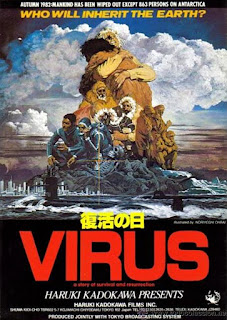Ran Review
RAN-1985
or
I wanna be the king....
Director_____Akira Kurosawa
Country_____Japan

Coming
to think of it now, I would say that this movie caught me off guard. I just
wasn’t prepared for this level of grandness. This was my first Kurosawa movie,
and I had gone in not really knowing what to expect.
Released
in 1985, Ran is arguably his last masterpiece. It was the 80’s and Kurosawa
then in his seventies was no longer the man he once had been, movies were few
and far between and age was catching up with him, finances were low but not his
appetite for producing great cinema. Though the idea for Ran was long in his mind,
but it wasn’t until he received financial support from producer Serge
Silberman, he was finally able to materialize it.
This
was the third time he was taking on Shakespeare. First being ‘Throne of Blood’,
which was an adaptation of ‘Macbeth’, the other one being ‘The Bad Sleep Well’,
loosely based on ‘Hamlet’. This time it was the tragical story of King Lear,
which was in focus.
Hidetora
Ichimonji, once upon a time, a powerful walord, someone whose name struck fear
in his enemies. A man who spent his life warring, conquests upon conquests, to
build a huge empire on the ashes of the men who preceded him, and the kings who
came in his path. But now he is old and longs for peace, away from the horrors
his empire was built upon, but life has a curious way of coming back at you,
and Hietora has to learn it the hard way.
He
decides to split up his empire among his three sons Taro, Jiro and Saburo.
Taro, the eldest is to get the first castle and become his successor, Jiro to
get the second and Saburo to get the third castle; and then makes a claim for
peace, hoping that the three brothers will remain united. Saburo, channeling Cordelia from the play, goes on to warn Hidetora about the folly in his ideas,
and how the brothers, may start infighting among themselves, and for this he
gets exiled. And thus begins the saga of the fall of a king, his spiral into
insanity and madness.
Tatsuya
Nakadai shines as Hidetora, as he fills him up with the regrets and tragedy of
a man, who has witnessed his own fall from might, by the very men who he
thought to be his own. You feel for him, this tired old man, as he desperately
tries to cling on to his last vestiges of sanity but fails terribly.
From
start to finish this movie is a visual and emotional marvel, filled with shots
exuding sheer beauty and a score that haunts you even after you are long done
with the movie. But for me a review of Ran is incomplete without the mention of
the siege of the Third castle. Never has a war scene been shot so gloriously,
no cgi, no animation, all of the humongous sets real, result of tireless
dedication. And as the battle rages around him, Hidetora sits as insanity gnaws
away at him, as his spirit is ravaged by the sheer horror of the merciless
horror raging around him, and he sits frozen, his eyes blank as flaming arrows
zip past him. The descent into madness is complete, he will never be the same
man again, the powerful ruler and the feared king, those are in the history. He
slowly ambles away from the castle, as the armies part away for him, stunned to
see how the man in front of them has fell.
There’s
one more aspect without which this review would be incomplete, Lady Kaede, the
career defining performance of Meiko Harada as the wife of Taro, the Lady
Macbeth of the movie. The woman who singlehandedly brings about the ruin of an
entire empire. Every frame she is in, she steals the thunder from all those
around her. Cunning, scheming, whispering she is the literal embodiment of the
devil in the shadows.
Directors
like Kurosawa remind you of what this medium is capable of, and movies like
Ran, make you want to fall in love with cinema all over again.




Comments
Post a Comment